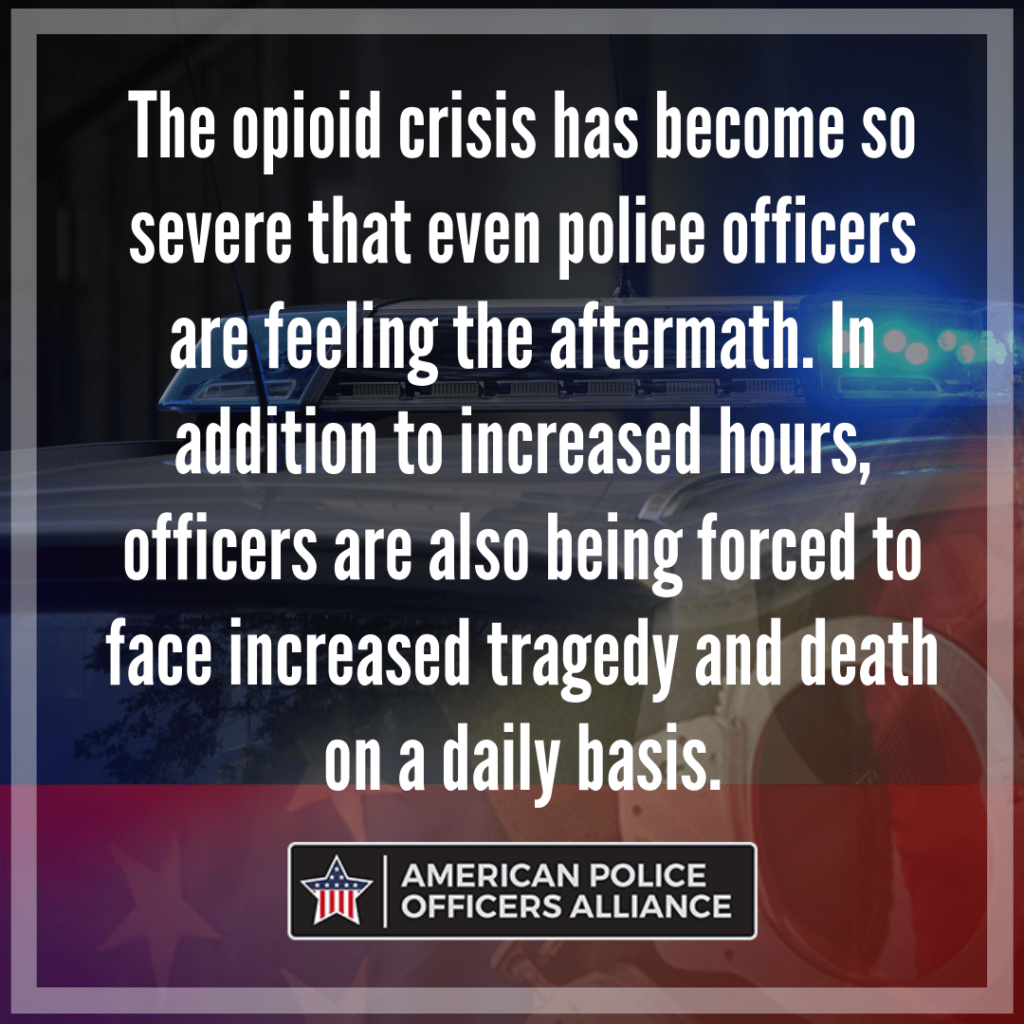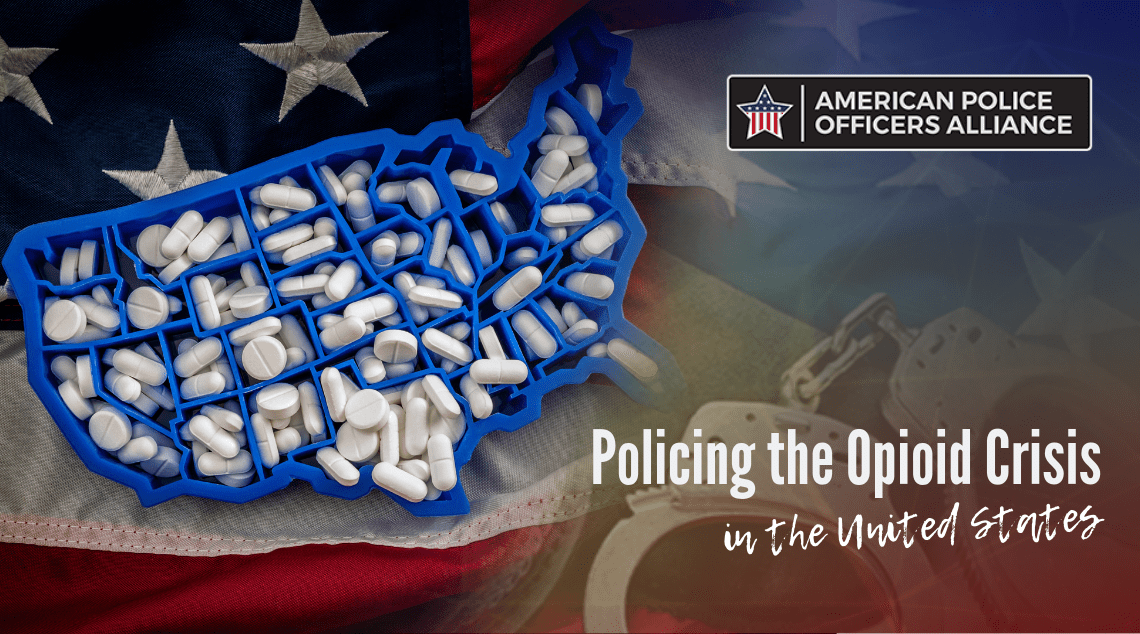Unfortunately, the United States is currently seeing an opioid crisis which is not only taking a toll on the lives lost, but also the police officers who are on the front lines of the campaign and war against opioids.
Currently, 900 people a week die from opioid-related overdoses, and it doesn’t stop there. Millions of Americans are battling an opioid addiction due to legally manufactured medications or illicit narcotics.
What most people don’t think about are the roles that police officers play in the opioid crisis. While the war against opioids is discussed often, there is rarely a mention of the impact that it has on police officers.
A Much Bigger Issue

Opioids most obvious threat is what it poses to public health but the not so obvious are the economical issues that come along with it as well as the national security. The country is diverting resources to the crisis that wouldn’t be normally necessary. Police officers are having to work longer hours which is taking them away from their families and other crimes that are occuring within communities.
Extra money is being spent to fund treatment centers and programs because there is a rising need for them. More hospital employees and first responders are having to work longer and harder. Over time, this will significantly have an impact on the economy, including the work that police officers are doing.
As far as national security goes, the US has taken necessary measures to better regulate the flow of narcotics into the US. Border patrol has increased which has in turn helped to decrease the amount of illegal drugs that are coming into the country. However, this hasn’t helped enough. Police officers are still having to patrol and monitor illegal opioids that are on the streets such as Heroin and Fentanyl.
Trickle Down Effect
The opioid crisis has become so severe that police officers are also now feeling the aftermath.
Not only are they having to work longer hours but they are also dealing with the traumatic side of the crisis. Officers that are called to the scene end up experiencing more overdoses which leads to death. Facing death on the job is something that police officers are trained to do but as the opioid crisis continues to worsen, more death is occurring which can take a toll on officers.
Heading in the Right Direction
While no police officer can stop the opioid crisis, they can do their best to work together in order to support one another through the rising death toll and war against opioids. More communities are in need of reassurance of safety and security, and it most often falls on police officers.
Through increased training and education, more police officers can get a better understanding of how to best deal with the crisis at hand. It is our hope that the United States as a whole works together to fight the war against opioids so that our communities and our police officers can get through this tough time.









